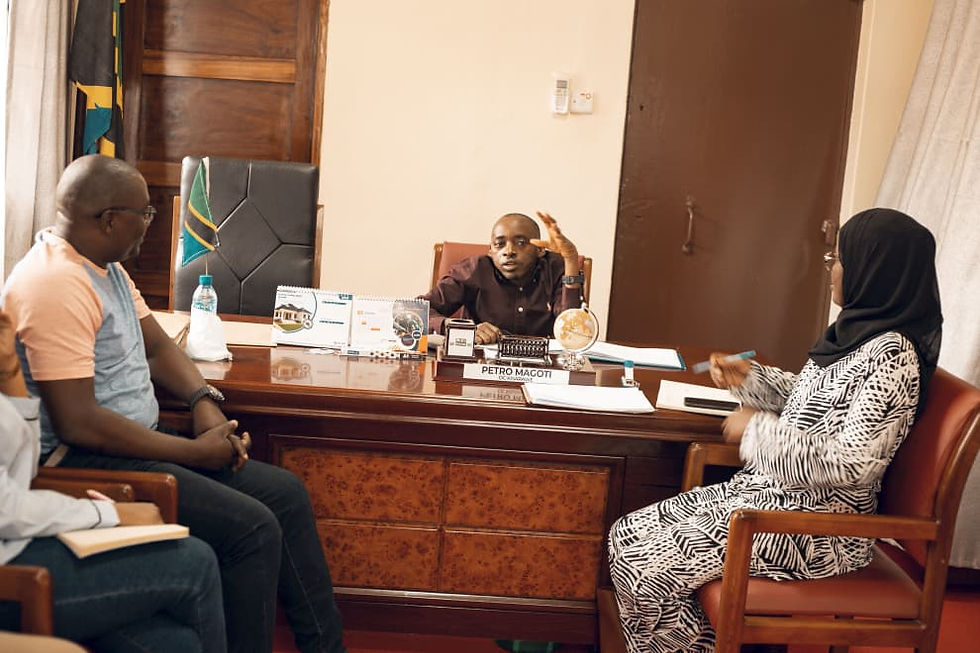A community-led initiative to fight SVAC - KUWAZA III.
- C-Sema Team
- Jan 29, 2024
- 2 min read
January 24, Unguja North, Zanzibar.
In a journey to the heart of North Unguja, accompanied by dedicated field staff and country directors, our funding partner Ms. Lucia Quintero from Oak Foundation embarked on an immersive experience to witness firsthand the impact of KUWAZA III. Their destination: Mkwajuni Shehia and Fujoni Primary and Secondary School, where the transformative power of the program echoed in the voices of beneficiaries and on-ground implementers.
The oak representative Ms. Lucia, was eager to delve into the facilitators' motivations for participating in KUWAZA III. What inspired them to become advocates for change? What moments did they cherish most in their roles, and how did they envision improving KUWAZA interventions in the upcoming Phase IV?
For many facilitators, the driving force lay in their deep connection to the community, their roles as youth activists, and their shared commitment to safeguarding the well-being of children. The uniqueness of KUWAZA III, with its primary focus on preventing sexual violence against children, resonated deeply, attracting facilitators who recognised the rarity of interventions emphasising prevention over response. Facilitators highlighted the timeliness of the toolkit content, coinciding with ongoing community discussions on SVAC incidents. Sitting down with community members to explore and discuss prevention strategies proved not only beneficial but also aligned with the community's readiness to engage in learning.
When asked about suggestions for improvement, facilitators shared invaluable insights. They proposed leveraging youth-led Community-Based Organisations (CBOs) for consistent and sustainable intervention strategies at the community level. Emphasising more efforts on men's engagement, involving community and national religious leaders, and utilising various platforms such as community radios, football clubs, fishermen groups, theatre, and panel discussions.
To enhance toolkit content, facilitators suggested incorporating audio and visual aid materials for case studies to capture trainees' attention and foster deeper discussions. Expanding the role of school clubs by organising debates on SVAC among schools and establishing succession plans for sustainability garnered additional support from the facilitators.
Ms. Lucia expressed her admiration for the facilitators' innovative ideas and their commitment to sustaining KUWAZA efforts in their communities. She applauded their collaborative spirit, urging the KUWAZA team to consider these ideas in the design of KUWAZA Phase IV, envisioning a trajectory of scale-up and sustainability in SVAC prevention strategies at local, national, and global levels.
As the conversations unfolded, the team witnessed the selfless efforts of children, who became advocates of SVAC prevention education in and out of school. Through songs and meetings, these young change-makers sought to spread awareness of creating safe spaces at school, at home, and in the streets. Ms. Lucia commended their dedication and encouraged them to amplify their impact through more creative avenues, suggesting school competitions and collaborative events for greater awareness.
The journey to North Unguja became more than a field trip and more of a narrative of collective empowerment, shared commitment, and the unyielding spirit of change-makers shaping the future of their communities.
Prepared by C-Sema's Media Team, Zanzibar.




